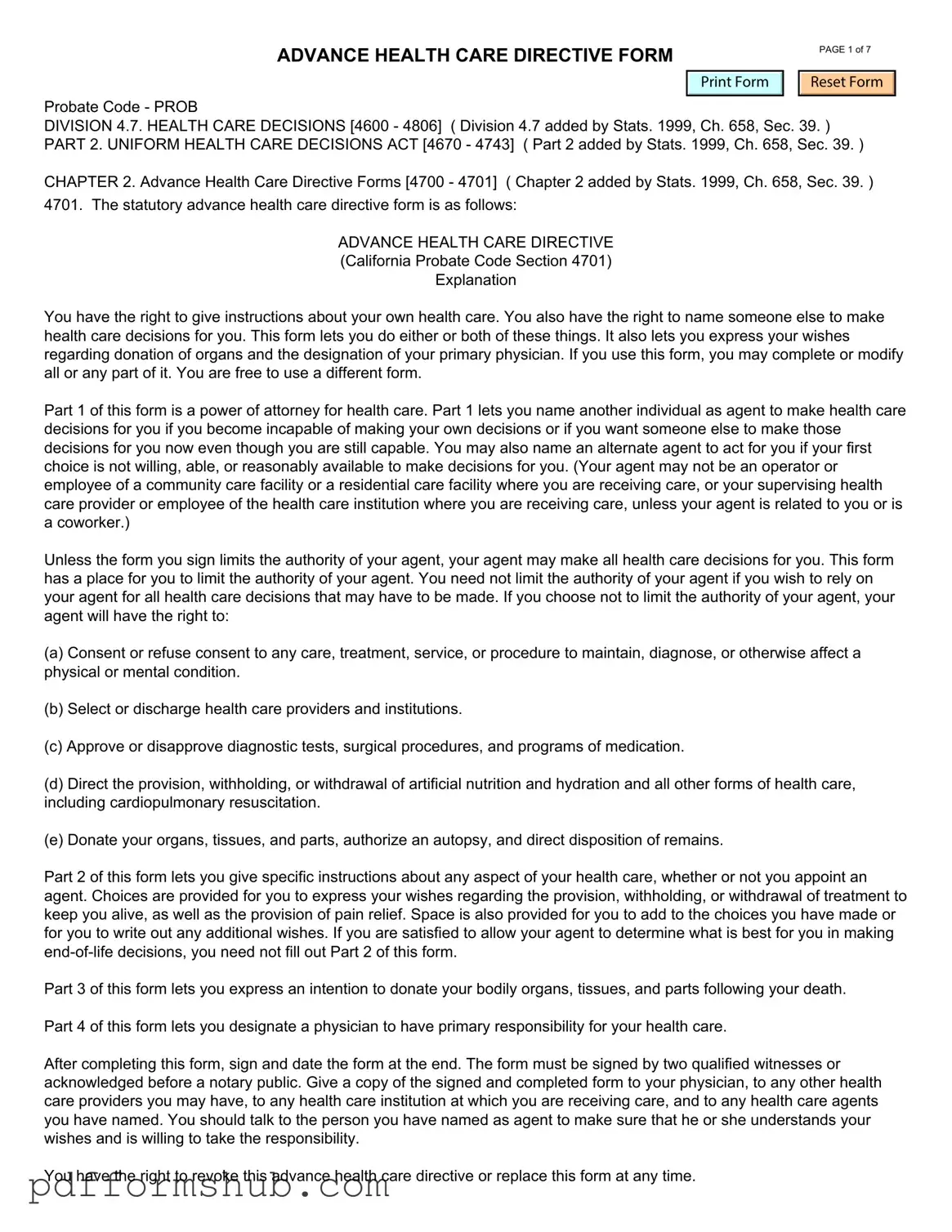Fill in Your California Advanced Health Care Directive Form
The California Advanced Health Care Directive is a legal document that allows individuals to outline their healthcare preferences and appoint someone to make medical decisions on their behalf if they become unable to do so. This form empowers individuals to ensure their wishes are respected during critical times. Consider filling out this important document to protect your healthcare choices by clicking the button below.
Customize Form

Fill in Your California Advanced Health Care Directive Form
Customize Form

Customize Form
or
Free PDF Form
Short deadline? Complete this form now
Complete California Advanced Health Care Directive online without printing hassles.